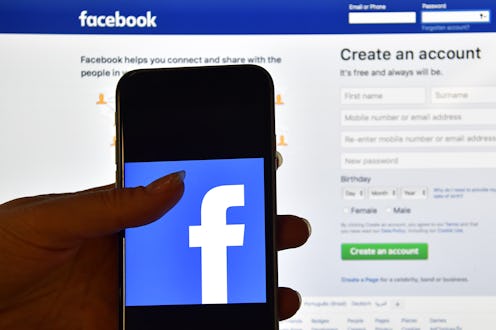Life
What Your Facebook Statuses Say About You

There have been a million and one studies done about how Facebook impacts our lives: whether it makes us depressed, whether it makes us lonely, whether people are just kvetching about all your selfies and online relationship PDA or whether they really, truly hate it. But what about using Facebook to monitor what we say, and whether our real personalities are reflected in our social media usage? Andrew Schwarz, a UPenn computer science professor, set out to analyze just that in "The World Well-Being Project."
Schwarz's project began as a way to measure happiness across the globe by using language from social media. After discovering the project, I wondered why Schwarz had chosen social media as his tool of choice. As it turns out, there's a good reason. "It's very difficult to study well-being at a large scale," Schwarz told The Atlantic. "It costs a lot of money to administer surveys to see how people are doing in certain areas. Social media can help with that.”
In keeping with that idea, Schwarz gathered information by debuting an app called My Personality, which monitored users' Facebook activity (with their permission this time!). Participants took a personality test, told the app their age and gender, and then got posting. After sufficient activity, My Personality was able to pull specific words or phrases from their comments and tell users what they indicated. If a user tossed around words like "party" and "baby," he might be an extrovert. On the other hand, if a user relied on emoticons, there was a much higher chance that she was an introvert.
The World Well-Being Project monitors more than introversion/extroversion, however. It can also tell you how old you are, based on the language you use. For example, 15-year-olds are far more likely to use the emoticon :) rather than the word "wonderful." 60-year-olds, on the other hand, make use of the phrase "I am thankful" more than both of those.
The project also measures language related to five major personality traits: extroversion/introversion, neuroticism, openness, conscientiousness, and agreeableness. Below are the word clouds for openness, with the top one indicating words used by those with a high openness score and the bottom indicating the language of those who scored low:
According to "The Language of Personality" page, "high openness is characterized by traits such as being intelligent, analytical, reflective, curious, imaginative, creative, and sophisticated," while "low openness is characterized by traits such as being unintelligent, unanalytical, unreflective, uninquisitive, unimaginative, uncreative, and unsophisticated." Also, having a high openness score apparently means that you talk about zombies. And...um, I actually don't know what a lot of the abbreviations on the low openness cloud mean. Also, people still say "nite?"
Perhaps most importantly, Schwarz and his team have identified what topics are more likely to pop up in the Facebook statuses and tweets of happy communities: exercise and the gym, volunteering, and donating, for example. Sad or depressed communities might talk about being bored or tired.
While some of the project's findings may be obvious, using social media results to make this kind of information a) readily available, and b) easily digestible helps us to understand the difference between the way we really are and the way we present ourselves online. It's also a stepping stone on the path to discovering how social media impacts our happiness and fulfillment.
Bored this afternoon? You can visit the World Well-Being Project's website and plot graphs yourself.
Images: The World Well-Being Project (2)